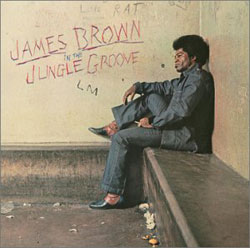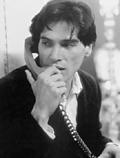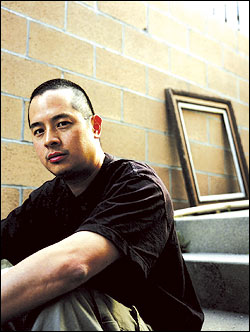“REPETITION IS A form of change” is a maxim that decorates one of Brian Eno and Peter Schmidt’s Oblique Strategies cards (a kind of I Ching designed for solving creative problems), and I’d bet money they were thinking of James Brown when they wrote it. No pop musician has made monomaniarhythmic, vocal, lyricalgo so far: Brown changed the course of music by sticking to one groove, each minor shift cracking open another world.
But the real test of Brown’s repetitive limits may be Polydor’s recent release of In the Jungle Groove and Motherlode. Not only are these compilations of previously released material, they’re not even new: Jungle Groove was originally released in 1986, Motherlode in 1988. Despite their cleaned-up sound and the addition of bonus tracks, it’s as plain as Brown’s scream that we’re reaching the point where record companies have scraped their vaults so clean they have no choice but to start reissuing reissues.
The difference is that these collections were conceived differently than the bulk of J.B. reissues, like Dead on the Heavy Funk, which sticks to an era, or James Brown’s Original Funky Divas, which covers a tangent. Jungle Groove was ordered around a specific period1969-71, Brown’s creative summitbut it was also a nod to hip-hop, its 16 minutes of music per vinyl side targeted to scratch DJs who were rediscovering Brown in the mid-’80s. In particular, the “Bonus Beats Reprise” of “Funky Drummer”three cut-up minutes of that song’s infernally elastic percussion breakdownessentially did the sampling for you; it’s no surprise that a deluge of “Funky Drummer”-based rap tracks (Eric B. & Rakim’s “Lyrics of Fury,” Public Enemy’s “Rebel Without a Pause,” etc.) followed immediately thereafter.
Motherlode, a set of previously unreleased cuts, was less seismic, but still grooves almost as hard as the hits: If it had been released in, say, 1974, it might have been proclaimed Brown’s best album in years. Most of these demos and not-quite-there live cuts (the live “Say It LoudI’m Black and I’m Proud” is missing the audience responseBrown: “Say it loud!” Audience: “[blank]”) were never intended for release, but hearing them back-to-back enhances their exploratory, and occasionally weird, verve. No J.B. scholarship is required to dig “Since You’ve Been Gone,” a sketchy duet with Bobby Byrd whose track was later recycled into “Give It Up or Turnit a Loose.” And the reissue’s inclusion of a 12-minute version of 1977’s “Bodyheat”Brown’s greatest incursion into disco, with its skeletal clavinet and hi-hat bobbing like a ball on a fishhookis consumer bait you can sink your teeth into. Repetitive? Of course. Monotonous? No way.








